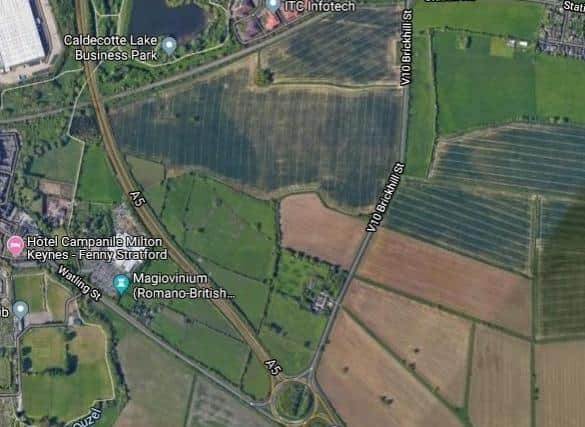Company wins appeal to build 140 acre employment site on the site of historic Roman ruins in Milton Keynes
and live on Freeview channel 276
HB (South Caldecotte) Ltd will now build warehouses, offices and industrial units on the land near Caldecote and Bow Brickhill.
Once completed, the site should generate around 2,500 jobs, they say.
Advertisement
Hide AdAdvertisement
Hide AdMK Council had refused planning permission for the large-scale development, saying it would impact archaeology and biodiversity as well as generate problems with highways and infrastructure.


Nick Crank, senior archaeological officer at Milton Keynes Council, said the development would lead to the total loss of "significant buried archaeological remains of probable national significance"
This, he says includes a Roman street and buildings forming part of the Roman town of Magiovinium.
But HB, which is part of property development and investment company Hampton Brook, lodged an appeal and recruited law firm Howes Percival to advise them.
The planning appeal was held by virtual public inquiry.
Advertisement
Hide AdAdvertisement
Hide AdHowes Percival, led by planning and development law Partner, Chris May, acted on behalf of HB, instructing Paul Tucker of Queen's Counsel and preparing the associated planning agreement. John Herd, an expert on commercial property and developer matters, acted on the associated property transaction.
Mr May said, "HB (South Caldecotte) Limited's scheme is a key strategic site for delivering economic growth and jobs within Milton Keynes and the surrounding area. We're delighted that the project now has the green light to go-ahead and to bring much needed economic investment to the area."
He added: "Planning appeals are a large part of our work. Coronavirus restrictions, particularly the requirement for social distancing has had a big impact on planning procedures, especially appeals. Holding the public inquiry at our offices illustrates how we can use technology to ensure planning appeals are able to continue in an effective and robust manner."